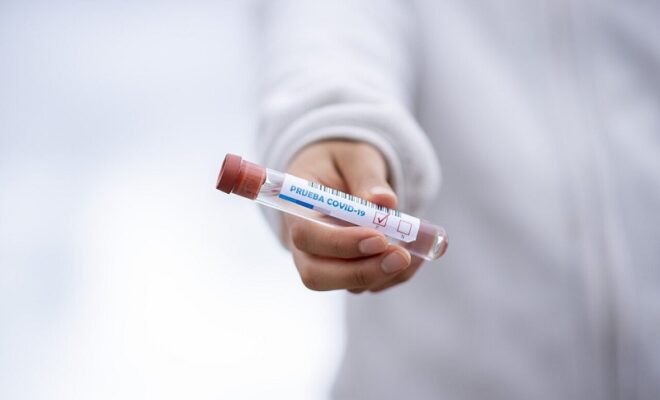How do COVID-19 tests differ from diagnostic tests?

Coronavirus (COVID-19) Testing can be divided into two types, diagnostic viral tests and antibody tests. Both of these tests use a different kind of sample to test for different hallmarks of the SARS-CoV-2 virus, the virus that causes COVID-19, and neither of them is 100% accurate. A diagnostic viral test reveals that you are having an active infection, while an antibody test tells whether you had a previous infection. Testing for COVID-19 is vital to curb the spread of the virus, as contacts can be traced and quarantine can be started sooner, especially for individuals with symptoms of COVID-19 such as fever, cough, or difficulty breathing or any close contact with a confirmed case. However, most people with mild illness can recover at home without medical care, hence it is important to always practice preventive measures such as social distancing, frequent hand-washing and wearing a face mask to avoid the spread of the virus.
Diagnostic viral tests check samples from your respiratory system, such as a nose swab, throat swab, or saliva, to determine if you have an active infection of COVID-19. The Food and Drug Administration (FDA) has approved two types of tests to diagnose COVID-19, a molecular test and an antigen test.
- Molecular test: This is the test most commonly used worldwide to diagnose COVID-19. This works by detecting the genetic material of the virus using a lab technique called polymerase chain reaction (PCR), hence it is also known as the PCR test. This test is considered to be most reliable as it is sensitive and accurate if properly done, but the rapid PCR test may miss some cases. The FDA has also approved certain COVID-19 home test nasal swab and saliva kits, only available with a doctor’s approval. The sample is then mailed to a lab for analysis.
- Antigen test: This is a newer test used to detect certain proteins that are part of the virus. As this test can produce results within minutes and is less expensive, it is more practical to be used for a large number of people. However, there is a higher chance of false-negative results (when you are infected with the virus but the antigen test is negative), which makes this test more suitable as a screening test. A doctor may recommend a molecular test to confirm a negative antigen test result if there is a strong suspicion of COVID-19.
If you test positive for COVID-19, know the protective steps and get medical care early. If you test negative, you probably were not infected at the time of testing but there is a chance of getting infected later.
Antibody tests (or serology tests) check your blood, through a finger prick or taking blood from your vein, for antibodies which shows that you had a past infection from the virus causing COVID-19. Depending on the timing of the antibody test done from the time of getting infected, it may not be positive in a current COVID-19 infection, hence it is not used to diagnose an active infection with COVID-19. However, it may be used to support the clinical assessment of a person who presents late when used in conjunction with diagnostic viral tests. If you test positive on an antibody test, you have antibodies from a previous infection with the SARS-CoV-2 virus, or it may be a related virus from the same family (called coronavirus). You may also test positive for antibodies if you had an asymptomatic infection (an infection without symptoms) of COVID-19. If you test negative on an antibody test, you could still have a current infection ongoing as antibodies typically take 1 to 3 weeks after infection to develop, or some people may not develop antibodies at all. This means that you could still get sick if there is recent exposure to the virus and you could still spread the virus.